“The best way to improve your online visibility is to write great content!”
We’ve all heard this before. In fact, we hear it over, and over, and over again.
Personally, I can’t stand when people say it.
Why? Because in my opinion, it misses the point entirely!

Are there advantages to writing great content? Of course.
- Better conversion. The more engaged your readers are, the more likely they are to give up their email address, like your page on Facebook, or even buy your products or services.
- Better time-on-page and lower bounce rate. The longer your visitors interact with your content, the better signals are sent to Google about how valuable your writing is to readers.
- Build more relationships in your industry. When you write something terrific, people take notice. This could help you develop partnerships or interact with people who could help you grow your online business.
But when people tell you that great content is the be-all, end-all to ranking well in search engines, it bugs me!
- Does that mean you can’t rank well if you’re not a world-class writer? The necessity to produce “great content” suggests that if you’re not one of the best writers in your industry or you don’t have the money to pay one to write for your website, you can’t compete. This couldn’t be further from the truth.
- It’s about providing value, not “greatness.” People use Google to find a resource that answers their query. The focus of Google since its inception has been to answer searcher intent. That should be your prerogative and if a brilliant piece of writing comes from it, so be it.
- The chase for greatness ignores low-hanging fruit. If you have a new website and want to write some “great content” to try to outrank a 5000-word guide on a DA 91 site, go right ahead. Chances are you’ll be up the river without a paddle. The trick is to find keyword opportunities you can actually compete for and write content that beats that of your pedestrian competition.
While writing terrific content has its advantages, it’s not the only way to win when it comes to gaining visibility in search engine results. Finding the right keyword opportunities means you only have to write content better than your average competitor, not the entire industry.
My company WP Buffs is a Domain Authority (DA) 19 site. Not very imposing.
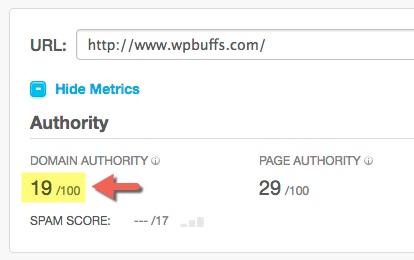
Yet we’ve managed to rank for some low- and medium-competition long-term keyword phrases. In this case, we managed to rank better than WordPress (DA 100) by optimizing for more niche search phrases.

Here’s the exact blueprint we use to find keyword opportunities that will allow us to increase our visibility in search results and win at Google.
1. Join All the Email Newsletters
First off, you’ll need to do some information gathering in your industry.
- Do a quick Google Search for “[your industry] newsletter” and sign up for as many as you come across. It’s important to sign up not only for the ones that seem high-quality, but for ones that are a little rougher around the edges. Remember — we’re looking for keyword opportunities, which means most will come from smaller or less refined websites.
- Set up Google Alerts for your industry. Because Google indexes every website and webpage across the internet (unless the website owner tells it not to), this will allow you to capture every new article in your industry regardless of whether or not they send out a newsletter.
- Sign up for Unroll.me to combine all your newsletters and Google alerts into one daily email. This will help you prioritize the important items in your inbox and review content when you decide it’s time.
We’re signed up for every WordPress newsletter on the web. We get tons of emails every day about what our SERP competitors are writing about, and it all comes in one, tidy email every morning.

2. Use SEMrush to Find Long-Tail Keyword Searches
When reviewing newsletters or Google alerts, take every article you find and submit it to SEMrush. It’s great for competitor analysis and keyword research.
When looking over what our WordPress competitors were writing about, we found these two articles:
- Better Media Management With WordPress Real Media Library: http://www.noupe.com/wordpress/better-media-management-wordpress-real-media-library.html
- Customizing the WordPress Media Library: http://www.wpwatercooler.com/video/wpblab-050-customizing-wordpress-media-library/
We used these articles, along with every article our team read, and used SEMrush to do a bit of competitor research.
There are a few ways we can find keyword opportunities from these articles:
- Under Domain Analytics > Organic Search > URL, you can find out exactly what keywords this article is ranking for.
- Under Keyword Analytics > Related Keywords, you can search for related keyword phrases to those in the article title. In this case, we did a search for “WordPress media library.”
Remember — what you’re looking for are long-tail keyword phrases, or searches that contain a string of words instead of just one or two.
By using the related search feature in SEMrush, we found the keyword phrase “WordPress digital asset management” along with a few others.
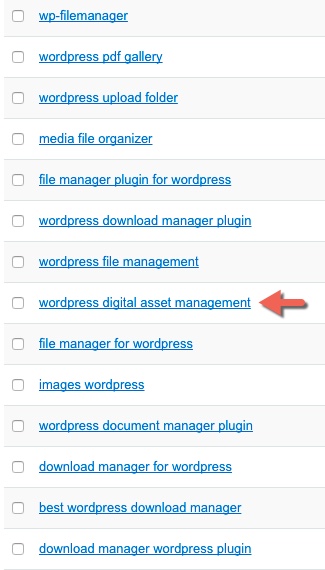 Note: The free version of SEMrush is terrific for base-level research, but if you want to dive even deeper, you may have to sign up for their introductory plan. They offer a seven-day money-back guarantee, so feel free to sign up, play around with it for a week and decide if it’s something you want to use long-term!
Note: The free version of SEMrush is terrific for base-level research, but if you want to dive even deeper, you may have to sign up for their introductory plan. They offer a seven-day money-back guarantee, so feel free to sign up, play around with it for a week and decide if it’s something you want to use long-term!
3. Do Some Manual Research
Now that you’ve put together a solid list of long-tail keywords, it’s time to see where the best opportunities are for you. This entire strategy will only work if we can find real opportunities in search results to focus a piece of content on.
Before we dive into search results, get the Mozbar Google Chrome plugin. This will allow us to see DA, Page Authority (PA), and links back to a website directly from Google search results! You’ll also need to create a free Moz account.
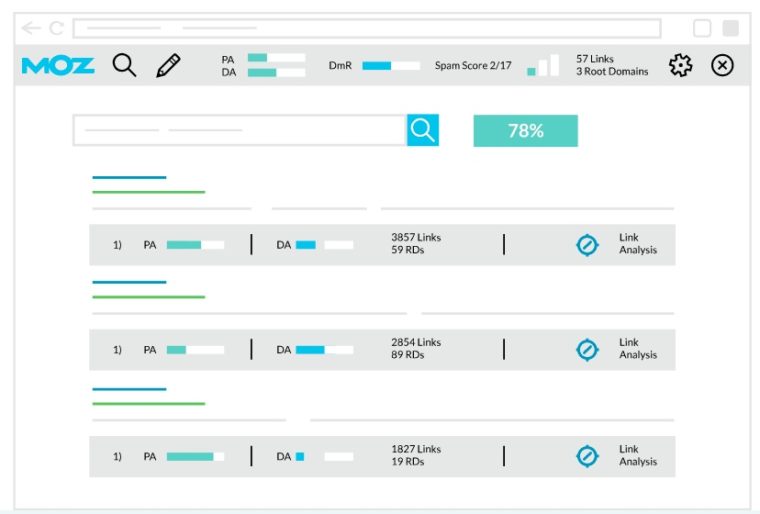
Activate Mozbar and start manually searching Google using the long-tail search phrases you found using SEMrush.
- Look for searches in which the top search result has a low DA. This is the easiest way to spot a search phrase that gets significant traffic according to SEMrush and provides a good opportunity for you to write content that takes over that #1 spot. A website with DA <40 is usually a great opportunity regardless of the DA of your own site.
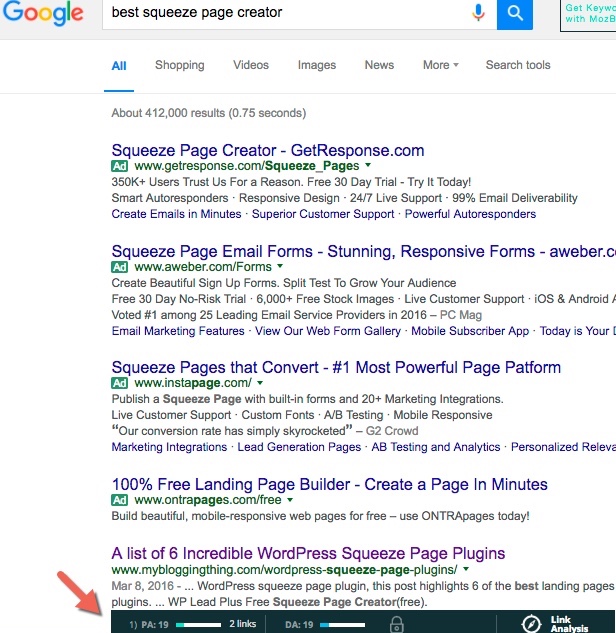
- Always remember searcher intent. If the top three websites have DA 100 but none of them answer the searcher’s intent, that’s also a good opportunity. You may end up ranking fourth, but you’ll get more people clicking through to your website than the three above since you answer their question and they don’t! That’s what we found with the search “WordPress digital asset management.” People would be looking for a more in-depth guide on the topic, not WordPress support.
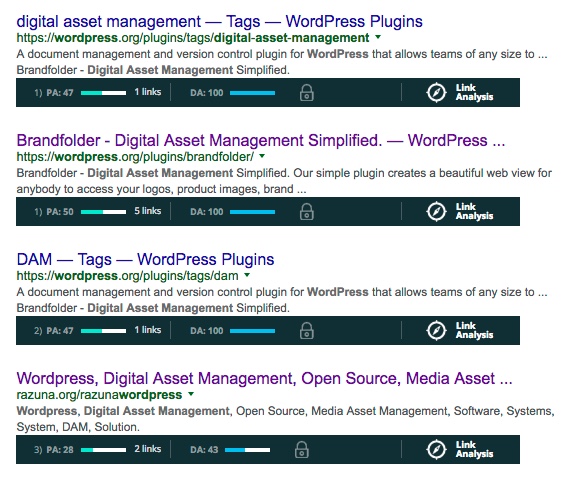
- Click through to websites to see what the content looks like. Often, you’ll find that the content that’s ranking is extremely thin and not helpful to searchers at all. That means an opportunity for you! The top-ranking page underneath the WordPress pages for the search “WordPress digital asset management” had 259 words. A 2000-word guide would trounce that!

You can also find long-tail keyword phrases by allowing Google to give you suggestions.
- Use Google’s autocomplete suggestions to add to your list of long-tail phrases. Google makes these suggestions based on the searches that get the most traffic, so they’re worth considering.

- Scroll to find more Google suggestions. Often, Google will include a list of related search phrases to the bottom of every page of search results.
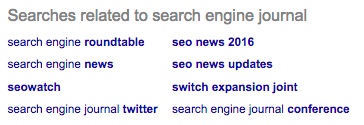
4. Writing Tips
The entire point of finding epic keyword opportunities is so you can write something that’s better than an average piece of content but doesn’t necessarily have to be one of the best in your industry. This means that even if you’re not a world-class writer, you can compete in search results by doing a bit of keyword research beforehand.
This means that even if you’re not a world-class writer, you can compete in search results by doing a bit of keyword research beforehand.
That being said, putting together a solid article to help your piece of content rank well can still be challenging. Here are a few tips:
- Write something long. Google likes long-form content that goes deep to answer a question. Spend three hours writing one 1500-word article instead of three 500-word articles. You’d rather have one piece of content ranking in the top few positions than three articles ranking on the second or third page.
- Focus on how-to guides. These are the easiest articles to write and show your expertise in the industry. People are more likely to buy from you if they know you solve problems when you encounter them!
- Focus on evergreen content. This means stay away from news and what’s hot right now. Stick to content that will be useful for searches in the next few years, not just the next few weeks.
- Make sure your on-page content is fully optimized. That means page title, H1 header, image alt tags, social media tags, etc.
- Getting backlinks will be helpful, but it’s not always necessary in this case. In this situation, we’re trying to outrank content that’s very average and doesn’t have any high-quality links. Writing long-form content and making sure your on-site optimization is on point should be enough.
Now it’s your turn! This strategy is useful regardless of how competitive your industry is or how authoritative your website is. We’re in the WordPress space which has a lot of major players, and we’re still able to compete in search results and hold our own. Give it a shot and stick with it and over time, you’ll start to see your organic traffic trend upwards.
This is my first contribution to SEJ, so if you’ve read this far, I would really appreciate some feedback! Please leave your thoughts in the comments below and let me know if this strategy worked for you too!
Image Credits:
Featured Image: Maarten van den Heuvel/Unsplash.com
In-post Photo: stevepb/Pixabay.com
Screenshots by Joe Howard. Taken November, 2016.





